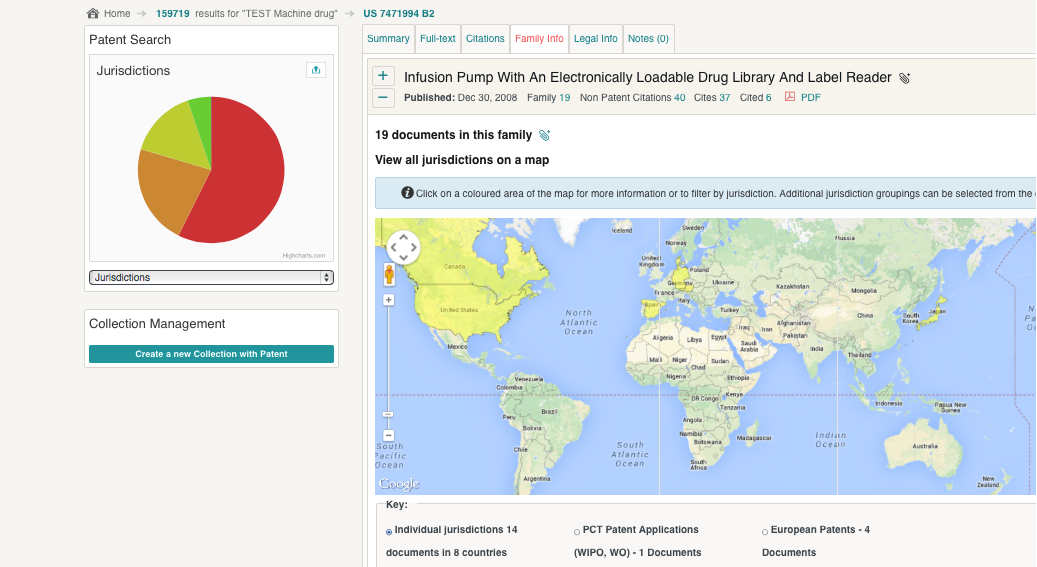I am looking through Google Patents and reading the paperwork of various patents. In what section can I see under which country the patent is valid?
2 Answers
While any single granted patent is granted in a specific jurisdiction and only enforceable there, the applicant may very well have filed duplicate applications in any number of other countries.
EDIT
Not every patent document is an issued patent. If the number has an "A" at the end it is an application. If it ends in a "B" that indicates an issued patent. But issued may not mean enforceable. It may have expired at the end of its term or renewal fees may not have been paid and it may have expired early. The two letter country code and the A or B suffix are international standards.
Google patents will not necessarily show all related patents. One way to get a bigger picture is to use the INAPOC database. You can get to it in several ways. One free patent search site, The Lens, says it covers 90 patent jurisdictions. When you look up and find a patent document it has a series of tabs. From the tabs you can seen where it has been filed (if it is a matter of public record at the time) and it also shows if renewal fees have been paid. A screen shot shows a map of the world showing the coverage of a particular semi-random pick.

Patents are only valid in the country that issues the patent. There are no international patents.
So, a US patent is only valid in the US. Likewise, a Japanese patent is only valid in Japan. Same with a German patent or a French patent or whatever.
To see what country issued the patent, check the front page of the patent. Typically the top of the front page will identify the type of document. Like "United States Patent" or similar.
-
Thanks, I wasnt sure if that was document language code up there. Commented Feb 5, 2014 at 18:39
-
To add to George's comment above - you can usually tell the country which issued the patent from the two letter prefix of the patent Commented Feb 5, 2014 at 23:53
-
Please forgive me for switching the chosen answer. But George White provides additional information. This does not mean your answer is not spot on. Commented Feb 7, 2014 at 20:31
